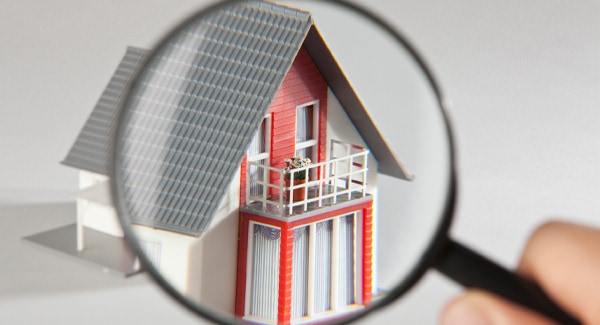
Last Updated on February 4, 2026
Asking a lot of questions is a great idea when you’re looking to buy a home. Asking the right questions will give you the edge you need to negotiate until you’re happy with the final result.
Armed with the answers to these ten questions, you’ll know what to expect, from pre-approval to closing day. After all, surprises are fun on birthdays, but they’re bad news in the home buying process.
What can I afford?
It’s so important to know how much house you can afford before you get your heart set on a particular property. When you know how much buying a home actually costs, and what you can reasonably handle, you’ll avoid the heartbreak of finding “the one” only to learn later that it’s out of your budget.
When you’re calculating your budget, make sure you factor in not just the estimated monthly mortgage payment, but also the down payment, homeowner’s insurance, HOA dues if applicable, home maintenance, and any renovations you’ll need to do on the house. If you’re not planning on putting down 20%, budget for PMI, or private mortgage insurance, as part of your monthly mortgage payment.
Getting pre-approved for a mortgage will help you understand how much you can afford, and it will make you a much more attractive buyer if you get into a multiple offer situation on the house of your dreams.
Is the seller motivated?
Two questions will help you gauge how motivated the seller is. First, why is the seller moving? Second, how long has the house been on the market?
People move for all kinds of reasons. Some of those reasons, like being relocated for a job that starts on a certain date, may result in a seller who’s more inclined to be flexible with price, contingencies, and credits for repairs and replacements.
The answer to this question isn’t readily available, but it doesn’t hurt to have your real estate agent ask the seller’s agent for any information they may be willing to share. They may even come clean about something that you really need to know, like the neighborhood going downhill, or serious issues with the house that are causing the sellers to move.
The next question is much easier to find out: how long has the house been on the market? Your agent can tell you this, no sweat, and a simple online search should uncover whether the house has been listed before by the same owner but taken off the market. Either way, the longer the house sits on the market, the more motivated the seller should be. Use this to your advantage when making your initial offer and negotiating the contract.
How does the property measure up?
You’re not buying a house in a vacuum, so the neighborhood is your friend! Ask your agent to pull comparable listings of homes currently on the market as well as homes that have sold in the last six months. Look at list price vs. sale price, price per square foot, days on market, and other details to help determine your initial offer and whether it’s a good idea to ask for concessions, like having the seller cover some of the closing costs.
What are the risks associated with this property?
Your homeowner’s insurance should cover the typical hazards that can affect a home, but depending on the property location, you may be looking at serious risk factors that require additional insurance.
For instance, properties located in flood zones may require the purchase of flood insurance — a separate policy from homeowner’s insurance. You can check whether a property falls under this category using FEMA’s Flood Map Service.
Earthquakes, hurricanes and tornadoes are additional risks that can be higher in certain geographic locations, so it’s important to find out the risk level of the property you’re considering. One way to find out what types of insurance claims have been filed on the home is to get a CLUE — or a Comprehensive Loss Underwriting Exchange.
This report discloses all homeowner’s insurance claims the seller has filed in the last seven years. This information, which your agent gets from the seller, may shed light on important issues that could affect how much you end up paying for homeowner’s insurance.
How old are the appliances and systems?
While we’re talking about risks, let’s look at the risks of purchasing those large appliances and major systems that come with a house. You’ve budgeted for this purchase like a pro, so the last thing you need is the surprise expense of replacing a furnace a month after you move in.
These things have fairly predictable life spans that are, unfortunately, shorter than the life span of the house. Find out the age of any appliances included in the sale, as well as the furnace, water heater, and heating, cooling, plumbing, and electrical systems.
If any of these are on their last legs, try to get a home warranty included in the sale, or negotiate a concession that factors in the cost of replacement.
Related reading: The role of a home warranty
How old is the roof?
Knowing the condition and age of the roof can save you a lot of headache and wallet-ache later. In a perfect world, the real estate listing would include this information. In the real world, you may need to ask. In addition to being a major expense you’ll need to plan for, an aging or problematic roof could affect whether your lender approves your mortgage loan.
What’s included in the sale?
The state where the house is located and the seller’s preferences both come into play when it comes to what’s included in a sale. Items considered “fixtures” (such as cabinets, faucets and window blinds) are typically included, but what about the appliances, window treatments, built-in speakers, or swing sets?
A good rule of thumb is: when in doubt, find out. You can also request in your offer that items like pool tables, swing sets or outdoor furniture get included in the sale. If the seller agrees, always get the answer in writing!
Are there any issues with the house?
Before you make a major purchase, you want to know as much as possible about what you’re investing in. That’s why the seller has to disclose all known issues with the house, and a comprehensive inspection is part of the home sale process.
When you get the disclosure and the inspection report, go through them in detail and ask your agent about anything that looks like a red flag or is something you don’t understand. Both of these reports help you get a clear idea of the issues associated with this investment you’re making for the next chapter of your life.
For older homes, or for any homes that you may be concerned about, make sure the seller discloses any previous issues with hazardous substances like lead paint, radon, mold, or asbestos. They also need to provide documentation for how those issues were treated. The inspection report should cover hazardous substances as well, and any red flags may require additional testing.
What’s the neighborhood really like?
The seller may tell you what they think you want to hear when you ask about the neighborhood. Don’t be afraid to drive around and chat up any neighbors who are out and about. They have nothing to lose by being honest about the pros and cons of the neighborhood. Find out about traffic, amenities, schools, pet-friendliness, and any other factors that will affect your quality of life on a daily basis.
Join the NextDoor and Facebook groups for the neighborhood. Find out about the local schools and crime statistics online. Do some practice runs from the property to work or schools during morning and evening rush hours to see if the commute is something that will work for you and your family.
What happens at closing and how much does it cost?
If everything goes according to plan, closing day is when you become a homeowner! Your down payment will be collected, along with all of the fees incurred from the many services that went into the home buying process, including loan origination, title research, and escrow fees. Most people pay between 2 and 5 percent of the property’s purchase price in closing costs (not including down payment). (For a $250,000 home, that’s $5,000 to $12,500.)
The loan estimate you received within three days of applying for your mortgage should contain estimated closing costs. You’ll also get a closing disclosure statement at least three business days before closing that contains the exact amounts of your closing costs. We recommend comparing this document to the loan estimate your lender sent at the beginning of the home buying process, and letting your agent know if you see any discrepancies or areas of concern.
_____________________
Howard Hanna Allen Tate Real Estate is the #1 real estate company in the Carolinas, with more than 80 offices and 2,000 agents serving communities across North and South Carolina and Georgia. As part of Howard Hanna Real Estate Services, the largest family-owned and operated real estate company in the United States, Howard Hanna Allen Tate offers a full suite of real estate services, including mortgage, insurance, title and relocation. For more information, visit www.howardhannatate.com.



